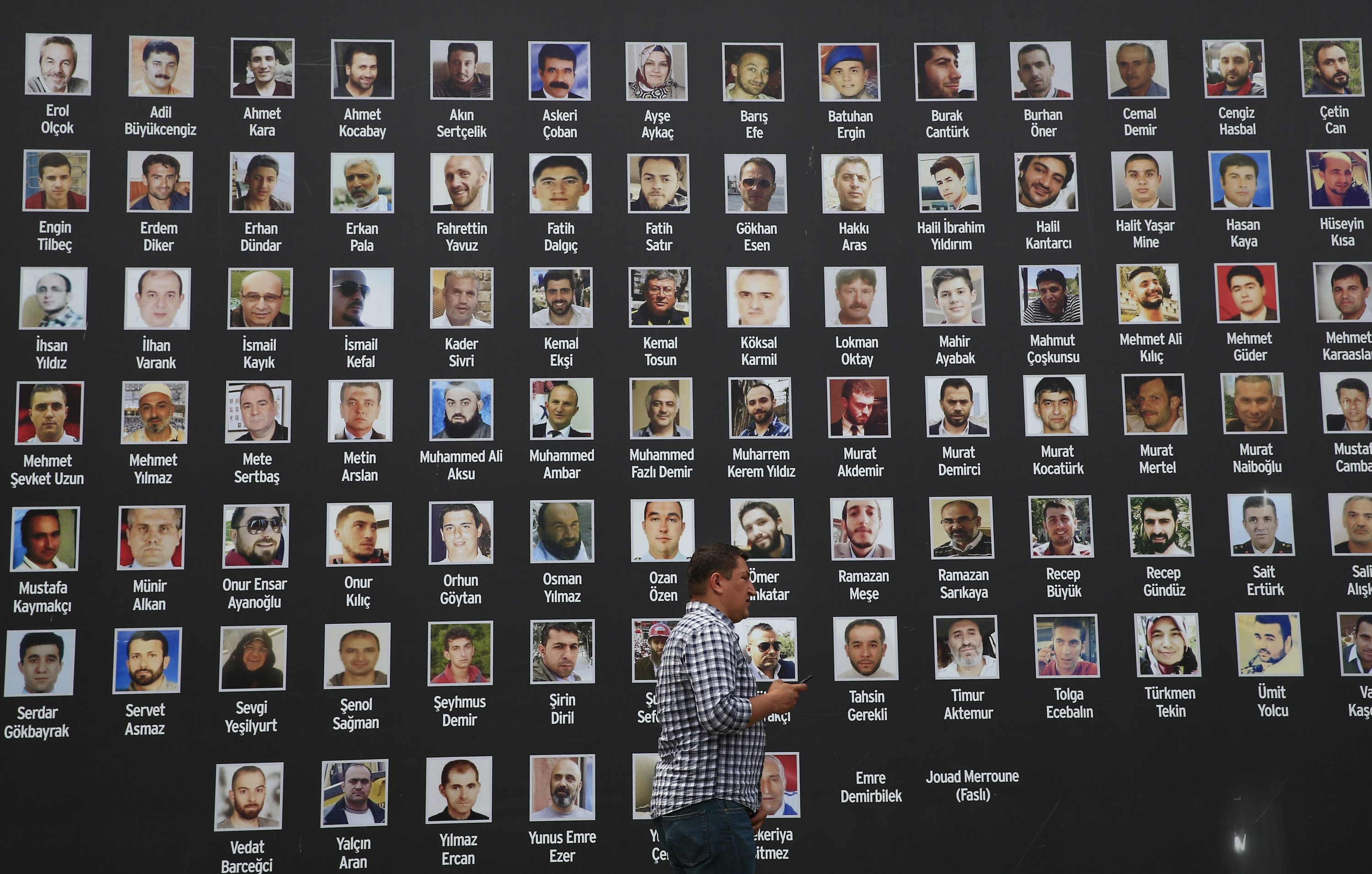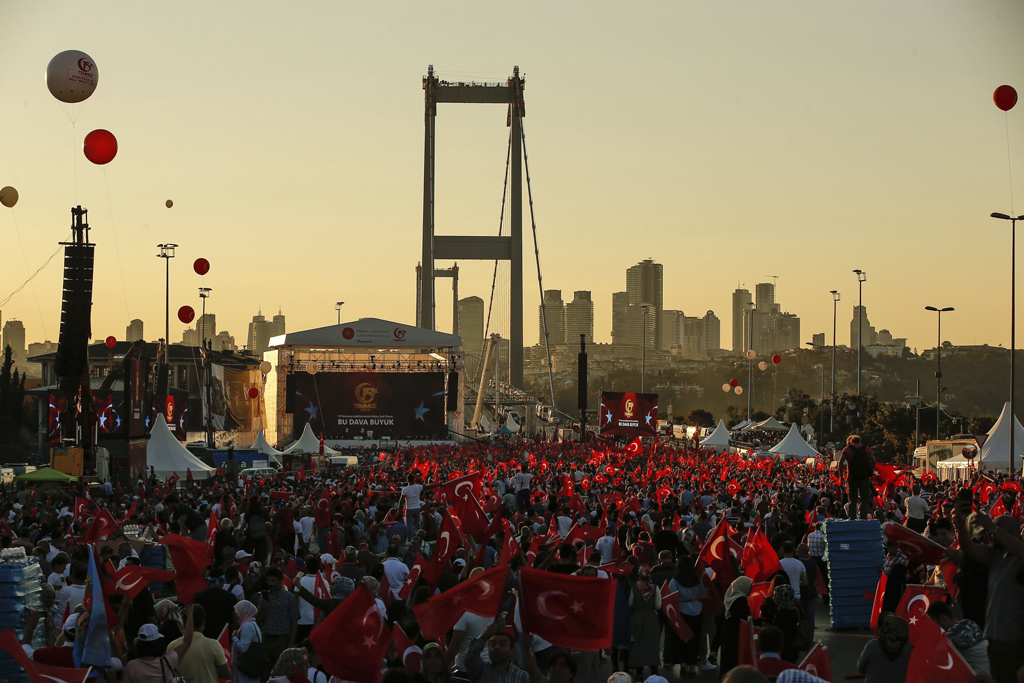'Muslim democracy'
The 2016 coup attempt was an attack against Turkey’s model of “Muslim democracy” under Erdoğan’s leadership. Turkey tried to form its model of democracy and inclusive political order that promised to address Turkey’s political, legal problems and economic instabilities. The country’s democratic experience and economic advancement under the Justice and Development Party (AK Party) administration were closely followed by millions of people, especially by most Muslim countries. Turkey’s success and achievements provided hope to some. In contrast, elites that were disconnected from grassroots level people and who disproportionately benefitted from the anti-democratic order of their countries were deeply disturbed by Turkey’s success and achievements. For them, the success of the Turkish model was a significant threat.Destabilization, demonization
The political elites of countries in the region that were disturbed by the democratic change also wanted to destabilize Turkey. They instrumentalized the discoursed of “radical threat” and “Neo-Ottomanism” to demonize Turkey and constrain its regional influence. For them, the anti-democratic order and instability in Turkey were a blessing. Thus they supported and sponsored terrorist networks of the Gülenist Terror Group (FETÖ), the YPG/PKK and Daesh to destabilize Turkey. Under Erdoğan’s leadership, Turkey managed to maintain a democratic system of governance that is in line with Turkey’s traditional values and marginalized groups.Reconciliation process
Turkey’s authoritarian and top-down nation-building project marginalized Kurds, conservative Muslims and Alevis for decades. The efforts to accommodate conservative circles under the democratic system helped prevent the very groups' radicalization in Turkey. Erdoğan initiated the reconciliation process that aimed to address the needs of Turkey’s Kurds and incorporate them as equal and dignified members of Turkish society. The process sought to marginalize the terrorist PKK and make mainstream the legitimate democratic actors among Turkey’s Kurdish population. Together with Turkey’s economic growth and advancement agenda, those efforts were a critical project that tried to bring a strong and sustainable democratic political order in Turkey. Those rifts and fragmentations weakened Turkish society and the Turkish economy for decades and allowed more space for tutelary forces.FETÖ's infiltrations
Unfortunately, FETÖ members, which infiltrated Turkey’s state apparatus and civil society, wanted to prevent the country's success and achievements toward a more inclusive, more stable and prosperous society. FETÖ members targeted Turkish democracy, the reconciliation process and the unity and integrity of the Turkish state and security apparatus. They were also supported and sponsored by the external forces that wanted to use and manipulate Turkey, the Turkish economy, and the Turkish security apparatus for their selfish interests. The pro-coup and pro-FETÖ forces wanted to keep Turkey under control with its problems and fragmentations. FETÖ was one of their most potent tools and investments within Turkey. Those forces did not even refrain from complaining about the purge of putschist forces from the Turkish state apparatus. Turkey’s Western allies failed to demonstrate the necessary support for Turkish democracy and solidarity with the democratically elected government in Turkey after the failed coup. Those actors even “harbored” putschists and FETÖ members. Turkish people are still skeptical and critical about the roles played by the U.S. and some other European countries. Their external sponsors and internal supporters aimed to target Turkey’s unity, stability and democracy. The Turkish nation did not want to return to the days where the tutelary forces defined Turkey’s fate which led hundreds of thousands of people from different political backgrounds, ages and gender to hit the streets to prevent the assault on Turkish democracy.
[Daily Sabah, July 16 2021]







